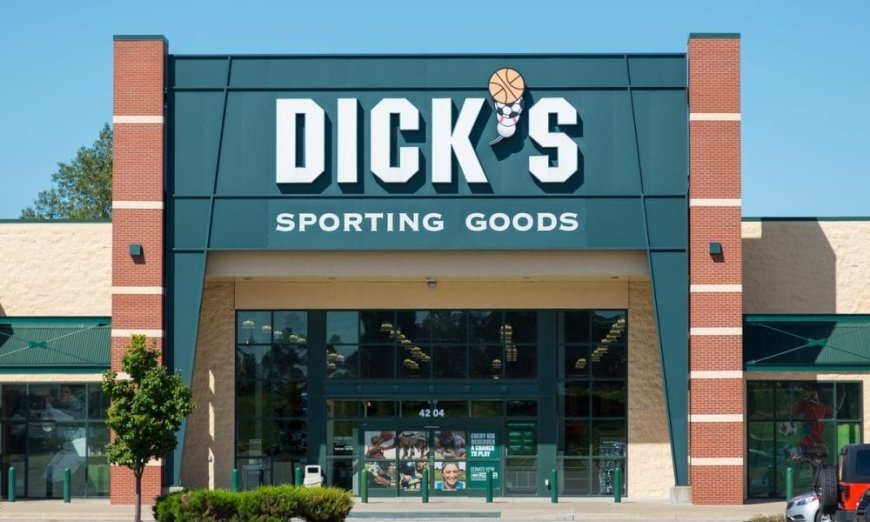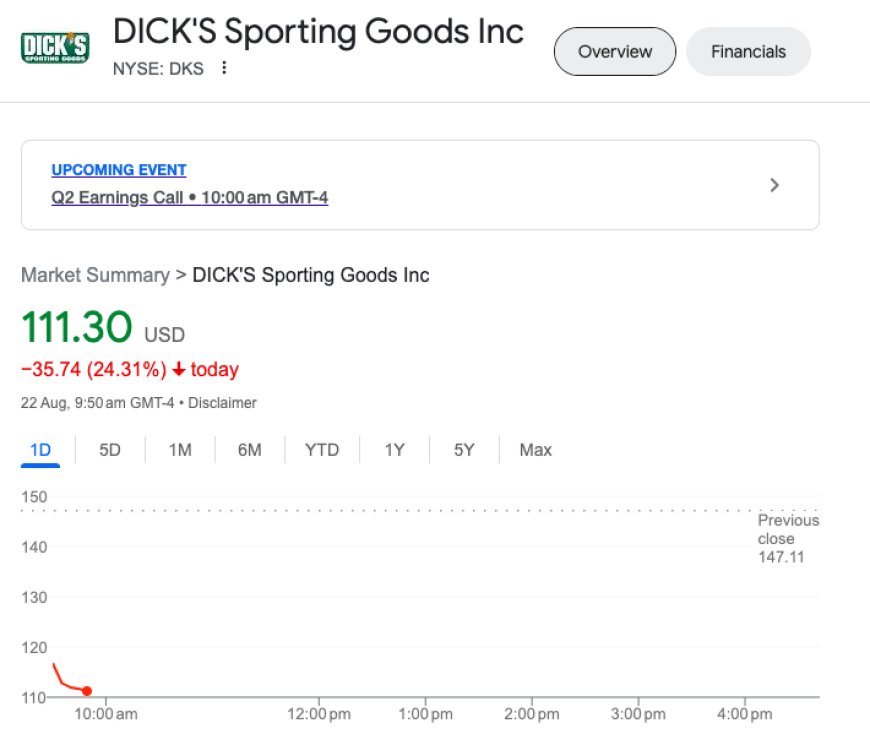Dick's Sporting Goods Faces Stock Drop Due to Retail Theft Impact
Read about how Dick's Sporting Goods confronts a substantial stock decline as organized retail crime impacts its profitability. Learn about the challenges faced by the sporting goods retailer and its implications.

Dick's Sporting Goods (DKS) encountered a significant setback as its stock value plummeted by more than 20% during Tuesday's trading session. The sporting goods retailer attributed this dramatic decline to the disruptive effects of organized retail crime, leading to a substantial dent in its profitability.
Lauren Hobart, the CEO of Dick's Sporting Goods, addressed the situation, stating, "Our Q2 profitability fell below expectations, largely due to the adverse impact of heightened inventory shrinkage—a growing issue that has been affecting a multitude of retailers." The company's second-quarter adjusted earnings per share stood at $2.80, notably lower than the consensus estimate of $3.81.

In response to these financial challenges, Dick's also revised its full-year profit forecast downward, citing the escalating incidents of retail crime. The revised projection now places the anticipated full-year adjusted earnings per share within the range of $11.50 to $12.30, a marked decrease from the previously anticipated range of $12.90 to $13.80.
Market analysts have offered insights into this situation. Seth Basham, an analyst at Wedbush, commented on the broader trend, noting, "This challenge has been negatively impacting a multitude of retailers, but DKS had not previously mentioned it."
Despite these hurdles, the company managed to achieve quarterly sales of $3.22 billion, just slightly below the predicted figure of $3.24 billion. Furthermore, Dick's maintained its outlook for comparable sales, projecting a range from flat to a modest 2% increase compared to the previous year.
Nonetheless, experts exercise caution as they evaluate the company's future prospects. Paul Lejuez, managing director at Citi, expressed his viewpoint, stating that while the recent surge in July's sales is noteworthy, it may not entirely dispel uncertainties regarding the company's ability to meet its annual guidance amidst increasingly challenging market conditions.
The rise of organized retail crime has emerged as a prominent industry-wide concern for over a year. Retail giants such as Target, Best Buy, Rite Aid, and Dollar Tree have all underscored the impact of "shrinkage," a term encompassing theft, on their profit margins.
The scope of this issue became evident in 2022 when Target reported a substantial profit loss of $400 million attributed to inventory shrinkage. Recent earnings calls from major retailers including Target, Home Depot, and Walmart have further highlighted the influence of shrink on their financial performance.
Richard McPhail, the CFO of Home Depot, elaborated on the situation, stating, "In the second quarter, our gross margin was 33%, marking an 8 basis points decrease from the previous year's second quarter. This decline was primarily attributed to the pressure stemming from shrink."
The consistent challenges posed by inventory shrinkage underscore the ongoing struggle retailers face in mitigating its adverse effects on their financial results.
Also Read: Apple's August Woes: From Highs to Correction Amid China and iPhone 15 Buzz































































